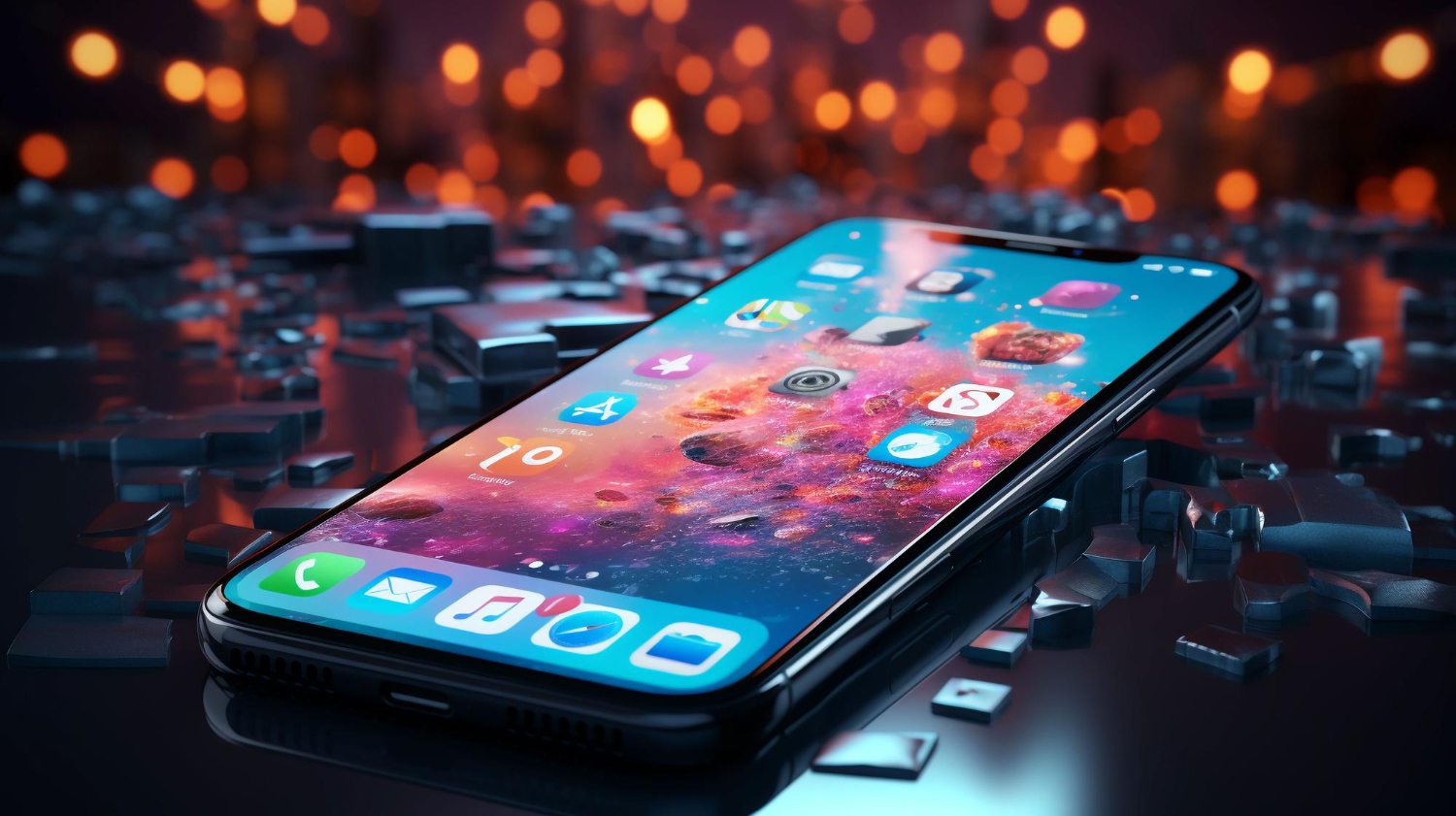BLOG
Mobile App Innovation: Embracing New Features and Technologies
Mobile app technology is constantly evolving, with new trends and advancements shaping the industry. To stay ahead of the competition and provide outstanding user experiences, mobile app developers must embrace the most recent trends and innovations.
The below statistics show the significance of mobile apps, in developing new business opportunities.
- As per the Statista Digital Market Outlook, the mobile app industry will generate a revenue of 613 billion U.S. dollars by 2025.
- In 2023, there will be approximately 299 billion app downloads It marks a notable increase from the 247 billion global app downloads recorded in 2020.
- During the third quarter of 2022, the Google Play Store boasted the largest selection of apps, with over 55 million available apps. The Apple Store, with 1.64 million iOS apps, still holds the position of the second-largest app store.
Let us explore the importance of mobile app innovation and how it can lead to success in an ever-changing market.
The Need for Mobile App Innovation
Meeting User Expectations:
User expectations are continually rising. People demand apps that are functional and offer a seamless and enjoyable experience. Innovations like augmented reality (AR), virtual reality (VR), and artificial intelligence (AI) are transforming user experiences and setting new standards. By incorporating these technologies, developers can create apps that captivate and engage users like never before.
Staying Competitive:
The mobile app market is highly competitive with thousands of new apps launched daily, making it crucial for developers to stand out. Innovation is the key to gaining a competitive edge. Apps that offer unique features and cutting-edge technologies are more likely to attract and retain users.
Enhancing User Engagement:
Innovative features can significantly enhance user engagement. For instance, gamification elements, personalized recommendations powered by machine learning algorithms, and social integration can make users feel more connected to the app. As a result, they are more likely to use it frequently and recommend it to others.
Monetization Opportunities:
Innovation can also open new monetization opportunities. Features like in-app purchases, subscription models, and partnerships with other businesses can help generate revenue. Moreover, apps that lead to innovation may command premium pricing or enjoy a larger market share.
Key Innovations in Mobile App Development
Mobile Learning
Mobile learning has gained immense popularity, and in the future, it will become the approach to education. According to projections, the mobile learning market will reach a substantial value of $58.50 billion by 2025, exhibiting an impressive Compound Annual Growth Rate (CAGR) of 21.45% from 2020 to 2025.
Mobile learning has gained popularity due to several compelling reasons. Firstly, it offers unparalleled accessibility, enabling learners to access educational content at their convenience and from any location.
Furthermore, mobile learning has introduced interactive and enjoyable learning experiences through features like continuous feedback and 360-degree learning. These elements significantly enhance the engagement, interactivity, and overall enjoyment of the learning process for students.
Instant Apps
Instant apps are one of the emerging mobile app development trends, allowing users to access specific app functionalities without installing the app.
But how does this work? Developers utilize Android Studio to create instant apps that users can experience without the hassle of installation. All it takes is a click on the “Try Now” button.
For example, a commerce app called Hollar experienced a notable increase in conversion rates and Android traffic by 20% and 30%, respectively, using instant apps. However, there are currently size restrictions, and some features may not be available in the instant app version. Such limitations will likely be addressed and refined in the upcoming developments.
So, if you are planning to launch an app in the Google Play Store in 2023, you should have its instant version.
P2P Mobile Apps
Peer-to-peer (P2P) mobile applications are gaining attention and have emerged as a prominent trend. These apps help direct transactions and communication between users, eliminating the need for intermediaries. Utilizing such an app provides the convenience of peer-to-peer payments, file sharing, and a collaborative marketplace all in one platform.
Utilizing secure and efficient technologies can enable users to experience seamless interactions that empower them to connect and transact directly with one another. As a result, this market will expand and set a prominent trend in mobile app development.
Mobile Commerce
Mobile commerce has been a dominant and thriving trend in 2021 and 2022 and will maintain its significance in 2023. Organizations of all sizes, including retailers, content creators, and personal brands, are actively developing mobile apps to boost their revenue by facilitating the buying and selling of goods. This mobile eCommerce functionality has become the primary selling point in client presentations for app developers.
In 2022, global eCommerce sales exceeded 5.7 trillion U.S. dollars. Sales will continue to soar to even greater heights in the coming year. The remarkable success of eCommerce sales can be attributed primarily to mobile devices, underscoring the pivotal role of apps in the triumph of mobile commerce. Consequently, eCommerce app development will remain a central focus in 2023.
Wearable App Integration
Wearable devices are experiencing a surging popularity. Smartwatches, trackers, and fitness bands have become increasingly prevalent. According to Statista, the global tally of connected wearable devices reached 1.1 billion; marking a notable increase from the 929 million recorded the previous year.
In 2019, Apple made a pivotal announcement concerning wearables and app integration during WWDC. The introduction of watchOS 6 brought the Apple App Store directly to the Apple Watch, enabling the creation of standalone apps tailored specifically for these devices.
Meanwhile, Google unveiled unified wearable platforms that merge its wear operating system with Samsung’s Tizen software platform resulting in a significant enhancement in app startup times.
Challenges in Mobile App Innovation
While embracing new features and technologies is essential for mobile app development, it comes with its own set of challenges:
Rapid Technological Changes:
Staying updated with the latest technologies can be overwhelming, as innovations emerge constantly. Developers must invest in continuous learning to remain competitive.
Integration Complexity:
Integrating advanced technologies like AR, VR, and AI into an app can be complex and require specialized skills. Collaboration with experts may be necessary.
User Privacy and Security:
Innovative features often require access to sensitive user data. Developers must prioritize privacy and security to build trust and adhere to data protection regulations.
Conclusion
Mobile app innovation is the driving force behind successful apps in today’s digital landscape. Embracing new features and technologies enhances user experiences and provides a competitive advantage.
Developers must continually adapt to stay relevant and meet the ever-increasing user expectations. By doing so, they can create apps that thrive in the market and contribute to shaping the future of mobile technology.
Related Topics
Trending Topics
Want to build Super app for your business?



